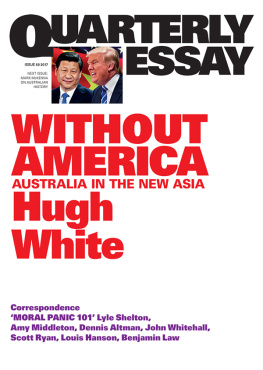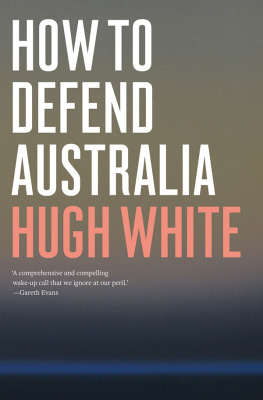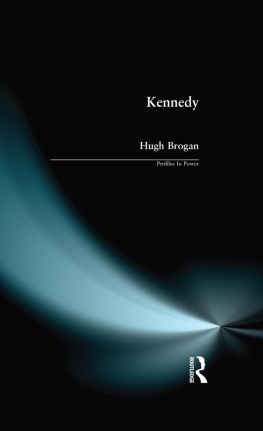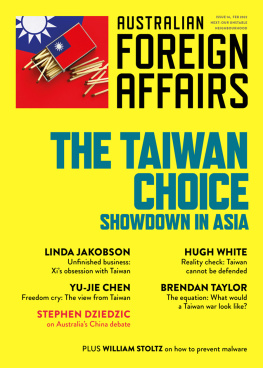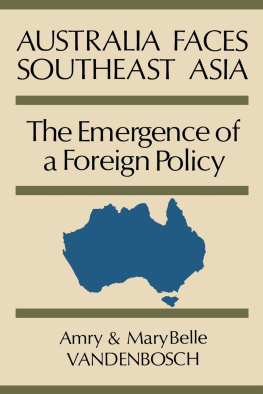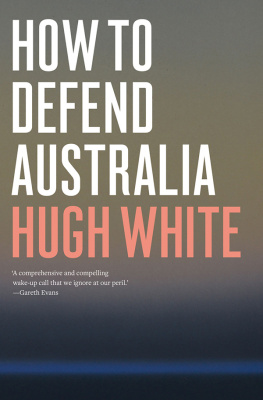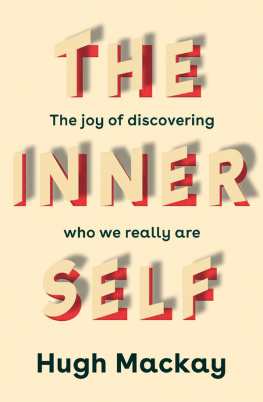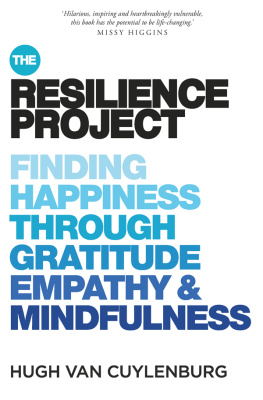Quarterly Essay is published four times a year by Black Inc., an imprint of Schwartz Publishing Pty Ltd. Publisher: Morry Schwartz.
ISBN 9781863959636 ISSN 1832-0953
ALL RIGHTS RESERVED.
No part of this publication may be reproduced, stored in a retrieval system, or transmitted in any form by any means electronic, mechanical, photocopying, recording or otherwise without the prior consent of the publishers.
Essay & correspondence retained by the authors.
Subscriptions 1 year print & digital (4 issues): $79.95 within Australia incl. GST. Outside Australia $119.95. 2 years print & digital (8 issues): $149.95 within Australia incl. GST. 1 year digital only: $49.95.
Payment may be made by Mastercard or Visa, or by cheque made out to Schwartz Publishing. Payment includes postage and handling.
To subscribe, fill out and post the subscription card or form inside this issue, or subscribe online:
www.quarterlyessay.com
Phone: 61 3 9486 0288
Correspondence should be addressed to:
The Editor, Quarterly Essay
Level 1, 221 Drummond Street
Carlton VIC 3053 Australia
Phone: 61 3 9486 0288 / Fax: 61 3 9011 6106
Email:
Editor: Chris Feik. Management: Caitlin Yates. Publicity: Anna Lensky. Design: Guy Mirabella. Assistant Editor: Kirstie Innes-Will. Production Coordinator: Hanako Smith. Typesetting: Tristan Main.
WITHOUT
AMERICA | Australia in the New Asia |
Hugh White |
For almost a decade now, the worlds two most powerful countries have been competing over which of them will dominate the worlds most important and dynamic region. America has been trying to remain East Asias primary power, and China has been trying to replace it. Their contest is playing out over trade deals and infrastructure plans, in the diplomacy of multilateral meetings, and above all through military gamesmanship in regional hotspots like the South China Sea, the East China Sea and the Korean Peninsula. But all these are really just symptoms of their underlying rivalry.
How the contest will proceed whether peacefully or violently, quickly or slowly is still uncertain, but the most likely outcome is now becoming clear. America will lose, and China will win. America will cease to play a major strategic role in Asia, and China will take its place as the dominant power. War remains possible, especially with someone like Donald Trump in the Oval Office. But the risk of war recedes as it becomes clearer that the odds are against America, and as people in Washington come to understand that their nation cannot defend its leadership in Asia by fighting an unwinnable war with China. The probability therefore grows that America will peacefully, and perhaps even willingly, withdraw. Indeed, this is already happening, and Asia is changing as a result. The old US-led order is passing, and a new China-led order is taking its place.
This is not what anyone expected. Seven years ago, in Quarterly Essay 39, I argued that as power shifted from Washington to Beijing, and as Chinas ambitions for leadership in Asia grew, America faced a contest in Asia which it would be unable to win outright. Its best option, therefore, would be to negotiate a new regional order, retaining a lesser but still substantial strategic role in Asia which would balance Chinas power, limit its influence and prevent East Asia falling under Chinese hegemony.
Many people disagreed. They argued that Americas power would remain so much greater than Chinas that it was unnecessary for America to make any such concessions. By holding firm, it could face down China, convince it to back off and leave American leadership in Asia unchallenged once more.
Alas, my critics and I were both wrong. We were slow to see the growing rivalry between America and China, and we didnt recognise, or permit ourselves to acknowledge, how serious the rivalry has become, and how badly it has been going for America. That is because we all underestimated Chinas power and resolve, and overestimated Americas. Not only is America failing to remain the dominant power, it is failing to retain any substantial strategic role at all. Many expected that China would falter before it grew strong enough to challenge America on anything like equal terms. Instead, China has kept growing stronger, economically, militarily and diplomatically, and Americas resolve has weakened. Now it is China that is facing down America. That was the clear message of Xi Jinpings remarkable assertion of Chinas status and power at the Nineteenth National Congress of the Communist Party of China, in October 2017. The contest is indeed unequal, but not in the way we thought. So we find ourselves in a new Asia, and we do not like it. But thats the hand history is dealing us, and we must make the best of it.
We in Australia havent seen this coming, because Washington hasnt seen it coming and we have got into the habit of seeing the world through Washingtons eyes. We have been happy to accept Washingtons assurances that it has Chinas measure, and Washington itself has been slow to understand how serious Chinas challenge has become and how badly it has mishandled the contest.
More broadly, our recent history has left us ill-equipped to understand what is happening. The contest between America and China is classic power politics of the harshest kind. We have not seen this kind of struggle in Asia since the end of the Vietnam War, or globally since the end of the Cold War. The generations of politicians, public servants, journalists, analysts and citizens who grew up with power politics and knew how it worked have left the public stage. Political leaders like Menzies and Fraser, Curtin and Whitlam, and Hawke, Keating and Howard; public servants like Arthur Tange; journalists like Peter Hastings and Dennis Warner; academics like Hedley Bull, Tom Millar and Coral Bell; and the voters who lived through the wars and struggles of the first three-quarters of the twentieth century: they would all find Asia today much easier to understand than we do. We have a lot to learn and not much time to learn it.
And of course it has been harder to acknowledge what has been happening in Asia because it has been so difficult to imagine where it is taking us. We are heading for an Asia we have never known before, one without an English-speaking great and powerful friend to dominate the region, keep us secure and protect our interests. The fear that this might happen the fear of abandonment, as Allan Gyngell calls it has been the mainspring of Australian foreign policy since World War II, and indeed long before. But since the Cold War ended a generation ago now we have forgotten those old fears and begun to take American power and protection for granted. We have come to depend more and more on America as its position in Asia has become weaker and weaker.
We have been happy to get rich off Chinas growth, confident that America can shield us from Chinas power. Now it is clear that confidence has been misplaced; we need to start thinking for ourselves about how to make our way and hold our corner in an Asia dominated by China.
That is what this essay is about. It looks first at how America is losing the contest with China, and then at Australia: how we have responded to the USChina contest so far, why we have got it so wrong, and what we can do now to manage the new reality we face.
THE SITUATION ROOM
It is 3 a.m. when the President enters the White House Situation Room. Good morning, everyone. I hope youve all had some sleep. I gather we have a problem. Set the scene for us, will you? he tells the National Security Adviser.

